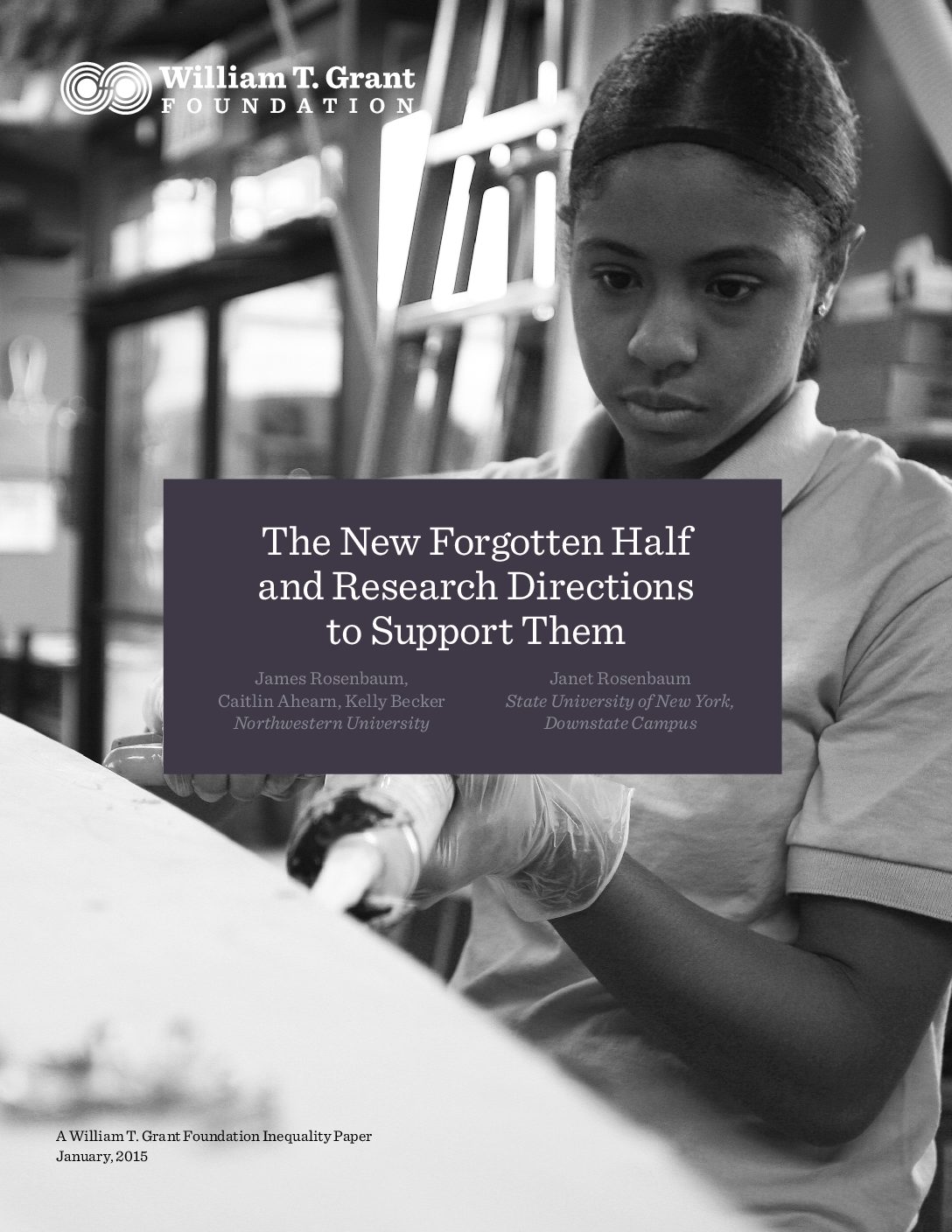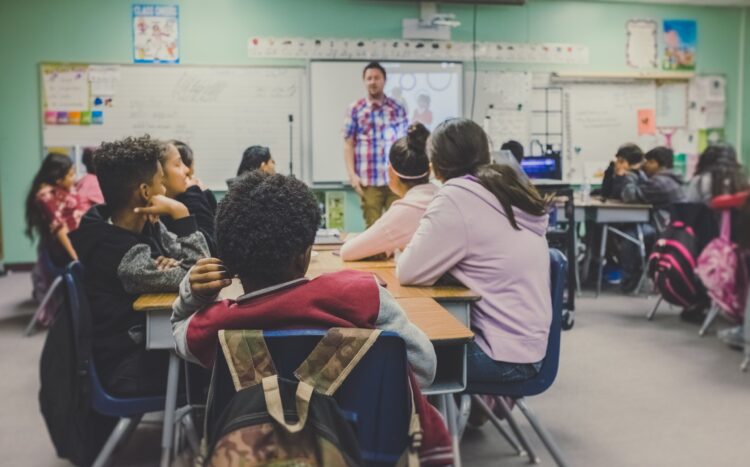Abstract
Amid expanded college access over the past several decades, as many as 86 percent of on-time high school graduates now continue their education. But the era of “college for all” has yielded a new set of challenges and obstacles for young people and the institutions that serve them, particularly community colleges. In The New Forgotten Half and Research Directions to Support Them, James Rosenbaum and colleagues find that many young people who enroll in community college fail to complete their studies and attain a degree, and that these youth fare no better in the labor market than those with only a high school diploma.
Using data from the nationally representative Educational Longitudinal Survey (ELS), the authors examine the circumstances of youth who drop out of community college before attaining a credential, discuss institutional challenges in the era of increased college access, and outline a research agenda to help youth move beyond “some college” and achieve their potential.
Who Was the Original Forgotten Half?
Published in 1988, The Forgotten Half: Pathways to Success for America’s Youth and Young Families, is the influential final report of the William T. Grant Foundation’s Commission on Youth and America’s Future. The Forgotten Half alerted us to the reality that individuals who did not attend college—fully half the nation’s youth, not just those in poverty—were struggling in “the passage to adulthood.” Perhaps most notably, the report demonstrated that vital social mechanisms were failing, causing youth to get lost in the transition to productive adult roles. But The Forgotten Half also presented constructive remedies such as individual supports to at-risk youth, better institutional alignment, improved school–work pathways, increased institutional supports such as job training and social services, and better recognition of youth’s capabilities.







